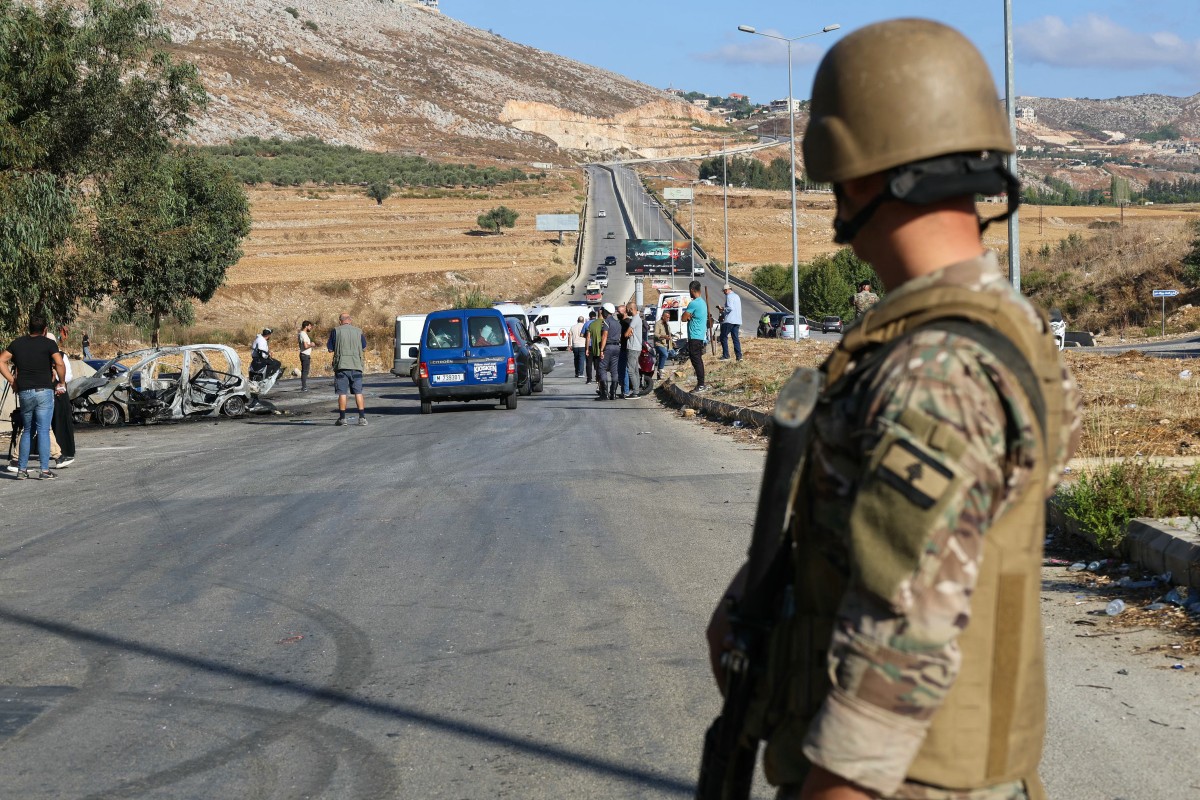Given the scale of Israeli threats and the successive American, Western, and Arab warnings of a devastating Israeli assault, it appears that Lebanon has entered a dangerous stage, while some politicians still interpret these warnings as mere pressure on the Lebanese authorities to disarm “Hezbollah” specifically, in order to avoid an Israeli military option.
Israeli media outlets exert daily pressure, claiming that “Hezbollah” has rebuilt its military capabilities in preparation for a new confrontation, a narrative seemingly intended to justify a large-scale Israeli war against the party. This pressure is accompanied by criticism of the Lebanese government, accused of failing to enforce its own decision to confine arms to state authority within the deadline ending later this year.
The authorities are aware that any internal clash over the issue of arms could endanger civil peace. That is why the President initiated a proposal for indirect negotiations with Israel through the “Mechanism Committee,” following the same approach as the 2022 talks that led to the maritime border demarcation agreement. President Aoun presented his initiative awaiting responses from both Washington and Tel Aviv, but no reply has yet arrived. It remains unclear whether Israel’s recent escalation of attacks on villages and towns south and north of the Litani River, under the pretext of targeting military commanders or rehabilitated “Hezbollah” positions, constitutes its answer.
The United States and Israel appear to be linking Lebanon’s disarmament to Gaza’s, believing that Hamas will not surrender its weapons in Gaza unless “Hezbollah” does so in Lebanon, and vice versa. It also seems that Israel has moved past negotiations, Resolution 1701, and the “Mechanism Committee,” amid expectations of a major security agreement between Washington and Damascus, including the establishment of a U.S. military base at the Mezzeh Military Airport adjacent to the Syrian capital. Reports suggest that Syrian President Ahmad al-Sharaa’s visit to Washington and his meeting with President Donald Trump mark the culmination of this security deal, paving the way for another imminent security agreement between Syria and Israel.
In Washington, it is said that the rivalry between U.S. envoy to Syria Tom Barrack, who is close to both the Syrian and Turkish presidents, and former envoy Joel Rayburn, who wanted Washington to maintain support for the Kurds, has ended in Barrack’s favor, costing Rayburn his chance at the post of Deputy Secretary of State for Near Eastern Affairs.
In this context, some say the United States has lost interest in Lebanon. Yet what has so far prevented Lebanon’s disintegration is the Lebanese Army’s cohesion and its avoidance of any direct confrontation with “Hezbollah” or other domestic factions. All parties appear determined to avoid such a confrontation, regardless of the cost.
Lebanon thus faces critical weeks ahead, and it is unlikely that Pope Leon XIV’s scheduled visit on the 30th of this month will alter the course of events. The Israelis are indifferent to the visit, particularly since his tour will include only Turkey and Lebanon, not Israel.
Notably, The Wall Street Journal published an editorial titled with two headlines: “Will Israel Take on Lebanon’s Dirty Work?” and “Trump Loses Patience After Beirut’s Failure to Disarm Hezbollah Terrorists,” suggesting that Washington’s red light for renewed Israeli military action has turned green. Most alarming was the article’s assertion that “America will no longer entangle itself in Lebanon’s situation, a failed state dictated by a foreign terrorist organization,” adding that Barrack is “frustrated” with “the Lebanese government’s paralysis,” having “given it every chance while restraining Israel for months, yet Beirut has neither confiscated Hezbollah’s weapons nor reconciled with Israel.”
The editorial also noted growing signs of a new Israeli offensive aimed at destroying “Hezbollah,” adding that “President Trump now has another reason to bolster U.S. credibility in the region: Gaza. Why should Hamas fear disarmament under Trump’s peace plan when Hezbollah escapes accountability in Lebanon?”
From this article and the prevailing realities, it can be inferred that Lebanon is heading into a sensitive and dangerous phase shaped by international and regional pressures, domestic divisions over the arms issue, and Israeli threats of a wide-scale war. Some argue that Lebanon faces two bitter choices: either yield to external pressure by disarming “Hezbollah,” risking severe internal instability, or cling to the weapons and risk a war more destructive than any before. Yet Lebanon could avoid these perils through minimal internal consensus among political actors and the authorities, a measure of flexibility from “Hezbollah” in handling the mounting pressures, and the emergence of an effective international will to prevent Israel from launching another war.
Please post your comments on:
[email protected]
 Politics
Politics








